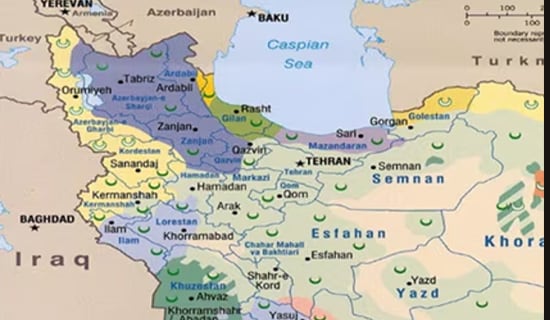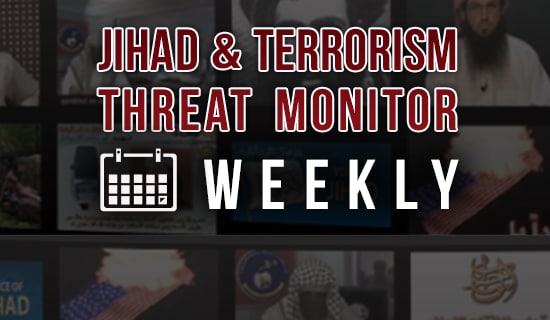The following reports are a complimentary offering from MEMRI's Jihad and Terrorism Threat Monitor (JTTM). For JTTM subscription information, click here.
Life Under The Shadow Of The Islamists In Syria – Part I: Imposing Authority On The Residents
By: L. Barkan
Introduction
In the internal war that has been raging in Syria since March 2011, the rebel forces have made substantial military achievements, which are embodied by the takeover of regions throughout the country as well as military bases and weapons caches. They dub these successes "liberation from the occupation of the Assad regime," and consequently these regions are referred to as "the liberated regions." The opposition forces – whether they are fighters who "liberated" these regions or arrived there after the liberation, or local bodies and activists – attempt to fill the authoritative and administrative vacuum that was created by the cessation of regime institution operation in those regions in order to enable normal lives and continue the activity of vital services and installations in the fields of food supply, education, healthcare, energy, and welfare. They also strive to establish security and protect the public order by acting against elements that harm the residents and the public order, and operate a legal system that assists them in this task.
The situation in the liberated regions is still tumultuous since fighting between the rebels and the regime, in and around them, has not ended and affects daily life; and because the rebel forces in those regions are not united. They include civil and military elements with different views regarding Syria's future, which have different loyalties and different sources of loyalty and support, which can cause conflict, often violent, between the various groups. On one hand, there are local elements with a civil and relatively moderate view – these are the local councils in the villages, towns, and governorates, which are tied to the Free Syrian Army (FSA) – the main framework of the fighting opposition in Syria – and to the National Coalition for Syrian Revolutionary and Opposition Forces – the umbrella organization of the political opposition and of other civil bodies. On the other hand, there are fighting Islamist organizations on the ground, some of whom are associated with Al-Qaeda, many of whose members are foreigners that arrived in Syria from around the world. Some of them are tied to the FSA[1] and some are independent.
The Islamists accompany their activities in managing the residents' lives with da'wa – Islamic propaganda via education and cultural activity in an effort to impose and Islamic lifestyle in terms of garb, fasting, family law, and more. This activity includes opening institutions to teach the Koran and shari'a; holding activities for residents during Ramadan; operating shari'a courts; arresting residents who violate Islamic law, openly criticize the Islamist trend, or are suspected of collaborating with the regime; and even leveling harsh penalties such as lashings or death on those considered criminals. It seems that the military might of these organizations grant them, at least in some cases, greater influence than that of the civil and moderate military organizations that operate in the same regions.
The activity of the Islamist organization is often resisted by the residents and local civil bodies, and is expressed by protests and on social media, but is supported by some of the residents as well.
This document, which will be presented in four parts, will display the activities of the Islamist organizations in Syria. The first part will deal with the way in which these organizations establish their control; the second part will deal with imposing the shari'a on the lives of residents and with educational and cultural activity with Islamic leanings; the third part will deal with these organizations' social and economic activities, and the fourth part will deal with responses of the residents to the organizations' activities.
Life Under The Shadow Of The Islamists In Syria – Part I: Imposing Authority On The Residents
Life Under The Shadow Of The Islamists In Syria – Part II: Enacting The Shari'a
By: L. Barkan
Introduction
Alongside their efforts to enforce authority and order and maintain security, the Islamist organizations in Syria's liberated regions and their associated legal authorities also work to enact the shari'a, in an attempt to give these regions an Islamic character. To this end, they enforce shari'a law in matters of dress code, behavior during Ramadan, smoking (which is forbidden according to Salafi beliefs), and more – the ultimate goal being the establishment of an Islamic state in Syria. With regards to shari'a penalties, there is often a contrast between moderate statements and the harsh penalties actually imposed, which occasionally spark rage from the residents, who see these trends as foreign to the moderate religious character of Syrian society.
The following are examples of the organizations' actions to enact shari'a law in the areas under their control.
Life Under The Shadow Of The Islamists In Syria – Part II: Enacting The Shari'a
Life Under The Shadow Of The Islamists In Syria – Part III: Social And Economic Activity
By: L. Barkan
Introduction
In addition to imposing their authority on the residents, maintaining security and order, and enforcing an Islamic lifestyle, the Islamist organizations operate vital services for residents in the domains of food, healthcare, and welfare, alongside educational and cultural activity meant to draw the public closer to the lifestyle of which they approve.
The following are examples of these activities:
Life Under The Shadow Of The Islamists In Syria – Part III: Social And Economic Activity
Life Under The Shadow Of The Islamists In Syria – Part IV: The Resistance Of The Residents
By: L. Barkan
Introduction
The Islamist forces' efforts to impose their rule in the liberated areas of Syria and to force their ideology upon the residents have not been without resistance from the latter. This is manifested mainly in demonstrations and in protest expressed on social media, for example on several Facebook pages opened by oppositionists that attack the Islamists. The oppositionists claim that the Islamists ultimately serve the West and the regime, and behave like the regime in order to suppress the revolution.
It seems that this resistance is steadily growing as the residents witness the negative impact that the Islamists, especially those tied to Al-Qaeda, have on residents' lives and on the course of the revolution and the international support it receives, and as conflict between the Islamists and other opposition elements increases. At the same time, the residents acknowledge the effectiveness of the Islamist organizations in fighting the regime and in providing social services and aid, and as a result have a hard time turning their backs on them, which is sometimes expressed in demonstrations of support for these organizations.
Life Under The Shadow Of The Islamists In Syria – Part IV: The Resistance Of The Residents








